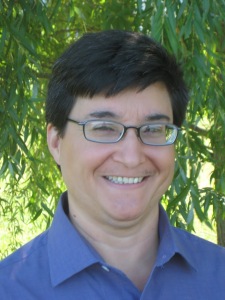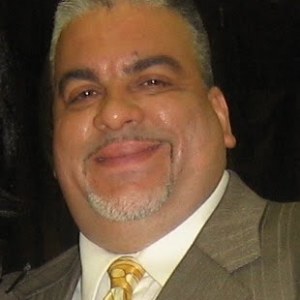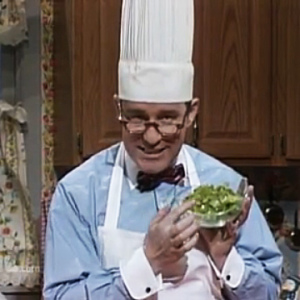by Melissa Keyes DiGioia
Today marks the last day of the national Lesbian, Gay, Bisexual, and Transgender (LGBT) Pride Month. President Obama’s proclamation recognizes important aspects of a person’s sexual self: sexual orientation and gender identity. In order to gain some perspectives on these important areas of sexuality education, I spoke with an expert, Lis Maurer.
Maurer is the founding Director of The Center for Lesbian, Gay, Bisexual & Transgender (LGBT) Education, Outreach, and Services at Ithaca College in Ithaca, New York. Maurer fosters the academic success and personal growth of LGBT and allied students, and offers college-wide services to enhance the campus community’s understanding and appreciation of LGBT people and themes. As a consultant and trainer, Maurer addresses a variety of additional themes, including disability, global health, diversity, and multiculturalism, and has spoken for audiences on three continents.
In 2009, Lis Maurer and co-editor Rebecca Plante created a fabulous new book entitled Doing Gender Diversity: Readings in Theory and Real-World Experience. Lis was kind enough to discuss the new book, blogging, and LGBT pride month.
Melissa Keyes DiGioia: How would you describe Doing Gender Diversity: Readings in Theory and Real-World Experience?:
Lis Maurer: It explores the fundamental question “What is gender diversity?” Diversity is often meant to focus on people who vary from what we typically expect or from what the majority experience is believed to be. Our book explores what it would mean to talk about gender diversities – to argue that all forms of gender, from the usual to the unusual, are socially constructed; and to investigate how gender is developed, experienced, and presented by the range of persons who “do” or perform gender (namely, all of us).
The complexity of our gendered lives can be confusing. The book focuses on gender itself—how gender operates socioculturally, exists, functions, and is presented in micro and macro interactions. The book is organized to examine the various ways in which culture intersects with individuals to produce the range of presentations of self that we call “gender,” from people born male who become adult men to lesbian women to transmen, and everyone else on the diverse gender spectrum.
MKD: What inspired the book’s creation?
LM: My co-editor, Rebecca Plante, and I were chatting one day about how amazing it would be if all the most exceptional articles about gender – from typical to transgressive – were all contained in one magical book. Such a book could be an outstanding text for classes on gender studies, sexuality, and a number of other disciplines…but sadly it did not exist. One challenge for faculty was locating and being able to provide such readings, but such an undertaking was difficult and time-consuming. And, all of the existing books we could think of tended to balkanize or silo both gender-diverse people and sexually-diverse people, setting aside a chapter or several readings that managed to set such people apart in an artificial manner – a fact that disturbed us, as it shortchanged the experiences of typically gendered people, while sensationalizing the experience of those with other gender identities and experiences. For fun, we began to brainstorm all the topics and themes that would be in such a book, the most excellent big book of genderful experience. And after awhile, we realized we actually had the makings of a really cool book. We wrote up a formal proposal, landed a publisher, and the rest is history! Ours really was an eclectic creative process that included many brainstorming sessions, donuts, a few surprises, disappointments, and happy accidents along the way.
MKD: The name of the book is quite interesting. Is there any significance?
LM: In the language of sociologists Candace West and Don Zimmerman – this book is about ‘doing gender.’ It was designed so readers will understand how gender is ‘done’ by all of us in ways that fully reveal our diversity. The book includes a range of sources, from popular press, first-person narratives to academic readings. We also wanted to avoid the pitfall of ‘segregating’ race, ethnicity, and multiple cultures.
MKD: Is the book geared for any particular audience?
LM: In our original thinking, we conceptualized it as text for undergraduate college students in sociology, gender and sexuality studies, history, anthropology, cultural studies, family studies/human development, social work, and the like. What we’re also hearing from reviewers though, is that it is also a great source book for the casual reader or anyone interested in learning more about gender. And when a review of the book appeared in Curve magazine, the nation’s best selling lesbian magazine, we were delighted to realize the scope of those interested in the book’s content reached far outside academia as well.
MKD: What hopes you do you have for readers?
LM: Our aim was to address issues of gender diversity relevant both on campus and in greater society; and to provide a timely resource against the backdrop of recent and markedly increased academic and media attention directed to gender diversity issues and themes. We believe it can assist in preparing students for life in a diverse and multicultural world, provide new and careful viewpoints with which to critically examine labels and socio-cultural assumptions, and that it provides one resource from which to draw readings focused on the spectrum of gender diversity themes.
MKD: You are a fellow blogger too! Tell us about the blog, Out for Good.
LM: I’ve been out as long as I can remember. I couldn’t live my life any other way. That’s my own experience, and with it comes a certain set of learnings, experiences, and sometimes adventures. I also respect that for some people decisions about coming out and being out – how, when, if, where, why, how much – can be messy and complicated. Out for Good is a space where I explore some of those ideas. Sometimes just getting out of bed can seem like a major accomplishment. There are lists and lists of problems and challenges that seem all too familiar in the terrain of LGBT life. And yet, there are those other times too, where despite the challenges of being part of a non-dominant group, there is some pretty good stuff happening. So the blog title is a double entendre that sums up all of that.
With the blog I consider all things LGBT and beyond. This includes the ways we interact with the local community and with the world, the ways our unique skills and experiences can be put into practice toward positive change, and the ways we can take good care of ourselves, and of each other.
I try to find some positive spin, where I can. And in cases where I can’t, I at least try to suggest ideas for finding common ground or for moving forward. Sometimes the things on my mind are directly related to LGBT themes, and other times they’re not at all. Since we are everywhere in the world, one might say any topic could be LGBT- related in some way or another. Blog posts have ranged everywhere from science to music to sports to literature. Country music, the politics of small towns, out LGBT college presidents, comic books, the 2010 Census – all places I’ve roamed so far in Out for Good.
MKD: What does The Center for Lesbian, Gay, Bisexual & Transgender (LGBT) Education, Outreach, and Services do and why is it important?
LM: The Center actively fosters the academic success and personal growth of LGBT students, and it offers college-wide services to enhance the campus community’s understanding and appreciation of LGBT people and themes. The Center provides access to information, education, support, and services that value each person’s unique diversity. The Center’s services include campus-wide LGBT-themed educational programs and opportunities including the annual Out of the Closet and Onto the Screen film series, a resource room that offers a welcoming and supportive environment for LGBT people and their allies, and resources, information, and referrals on LGBT issues. In my role on campus I also support students and our four LGBT-themed student organizations, and provide classroom presentations on LGBT themes in courses from occupational therapy to economics.
MKD: What recommendations do you have for professionals to create a safe space to explore sexual orientation and gender with their audiences?
LM: First, be prepared. If you’re newer to this area, tap into some of the great resources that are available. And even if you’ve been doing this work for awhile, know that some things do change! Young people especially are expanding boundaries, challenging assumptions, and constructing identity and community in exciting new and different ways.
Next, there are some easy, concrete things everyone can do:
- Know how to locate a few key resources both online and in the community, for reference and referral.
- Include LGBT-themed info and materials in your sessions or settings, and infuse your curriculum with content about sexual orientation and gender identity – ideally not as a separate, compartmentalized topic but as another important aspect to every topic.
- Use inclusive language at all times, and call people what they want to be called. If you are unsure about pronouns or preferred name, ask politely.
- Respond when you hear others using non-inclusive language, making derogatory jokes, using incorrect assumptions/stereotypes, or voicing misinformation.
MKD: June is LGBT pride month. What pride celebratory events, do you suggest?
LM: If you live in or near a community that will have a specific Pride event or celebration, go! There are several websites that provide comprehensive calendars of when and where Pride events occur throughout the country and throughout the world. There’s also a handy app that provides that information, too. Or, contact your nearest community-based LGBT Center or campus-based center to ask. Once you find them, you can also find out more about their offerings, or even volunteer.
If your community doesn’t have a Pride celebration, or you’d like to experience another one, those in big cities like New York, LA and San Francisco are always popular, too. It’s also a great time to learn more, for instance the US Department of State has created a special page for Pride month where you can see profiles of some of the LGBT employees who work there, and also read the proclamations commemorating Pride Month from President Obama and the Secretary of State, Hilary Clinton.








Lis Maurer rocks!
Thanks CLFE and Lis for being so awesome. You’re both invaluable to the field!
Lis Maurer truly does rock!!